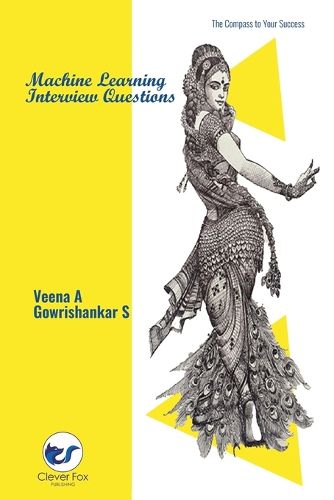Readings Newsletter
Become a Readings Member to make your shopping experience even easier.
Sign in or sign up for free!
You’re not far away from qualifying for FREE standard shipping within Australia
You’ve qualified for FREE standard shipping within Australia
The cart is loading…






The book aim of Machine Learning interview questions is to determine a candidate's level of
knowledge and understanding of Machine Learning concepts, algorithms, and tools. These
types of interviews are often used by employers to assess an applicant's problem-solving
skills and technical proficiency in the field.
The scope of scope of this book Machine Learning interview questions can range from basic
to more complex topics, such as the fundamentals of supervised and unsupervised learning,
working with data sets and libraries, building ML models, and deploying and monitoring ML
systems. Additionally, the interviewer may ask questions about the candidate's experience
with specific Machine Learning frameworks, data science techniques, and software
engineering practices.
Overall, this book helps to assess the candidate's level of knowledge and experience in the
field of Machine Learning. As such, it is important for the interviewer to ask questions that
are relevant to the job and the candidate's qualifications, as well as to provide a supportive
environment where the candidate can demonstrate their skillset.
$9.00 standard shipping within Australia
FREE standard shipping within Australia for orders over $100.00
Express & International shipping calculated at checkout
Stock availability can be subject to change without notice. We recommend calling the shop or contacting our online team to check availability of low stock items. Please see our Shopping Online page for more details.
The book aim of Machine Learning interview questions is to determine a candidate's level of
knowledge and understanding of Machine Learning concepts, algorithms, and tools. These
types of interviews are often used by employers to assess an applicant's problem-solving
skills and technical proficiency in the field.
The scope of scope of this book Machine Learning interview questions can range from basic
to more complex topics, such as the fundamentals of supervised and unsupervised learning,
working with data sets and libraries, building ML models, and deploying and monitoring ML
systems. Additionally, the interviewer may ask questions about the candidate's experience
with specific Machine Learning frameworks, data science techniques, and software
engineering practices.
Overall, this book helps to assess the candidate's level of knowledge and experience in the
field of Machine Learning. As such, it is important for the interviewer to ask questions that
are relevant to the job and the candidate's qualifications, as well as to provide a supportive
environment where the candidate can demonstrate their skillset.